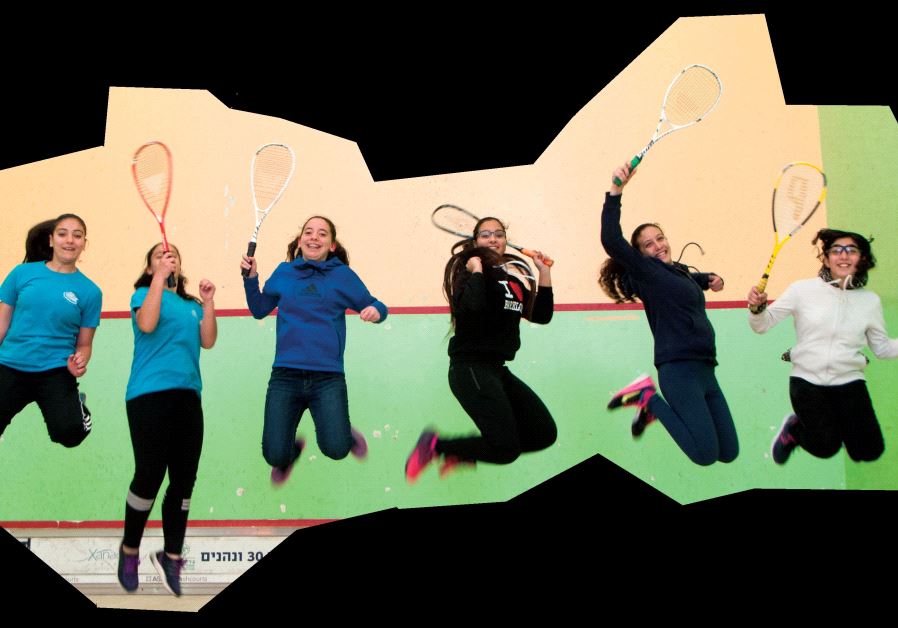Squashbond: Sport and beyond
Squash is a break with a burn: Players work up a steaming sweat. In 2003, Forbes magazine rated it as the healthiest sport in the world.
 Tira meets Ra’anana as young squash players work up a sweat(photo credit: DANIELLE MEHLER)
Tira meets Ra’anana as young squash players work up a sweat(photo credit: DANIELLE MEHLER)